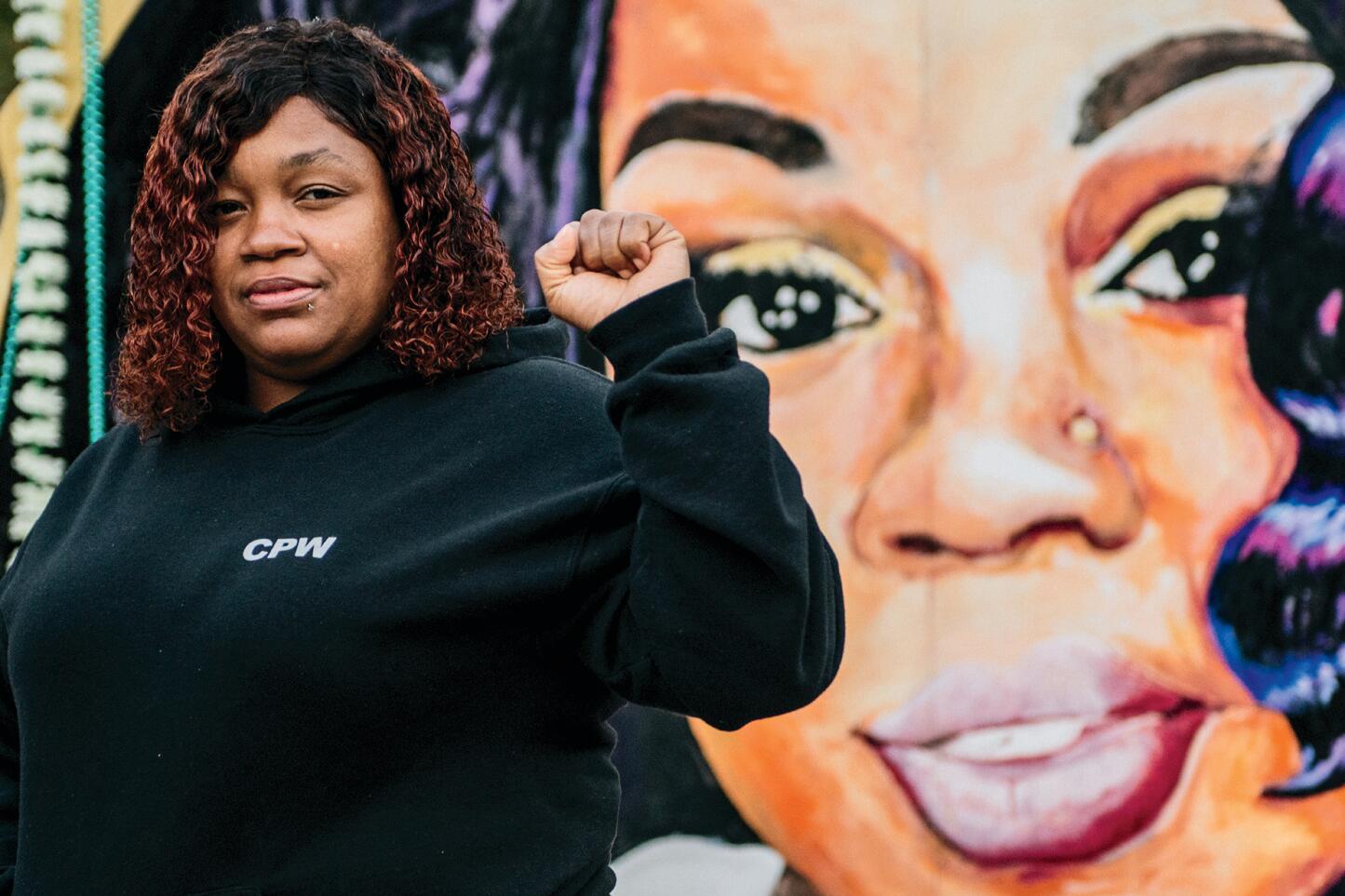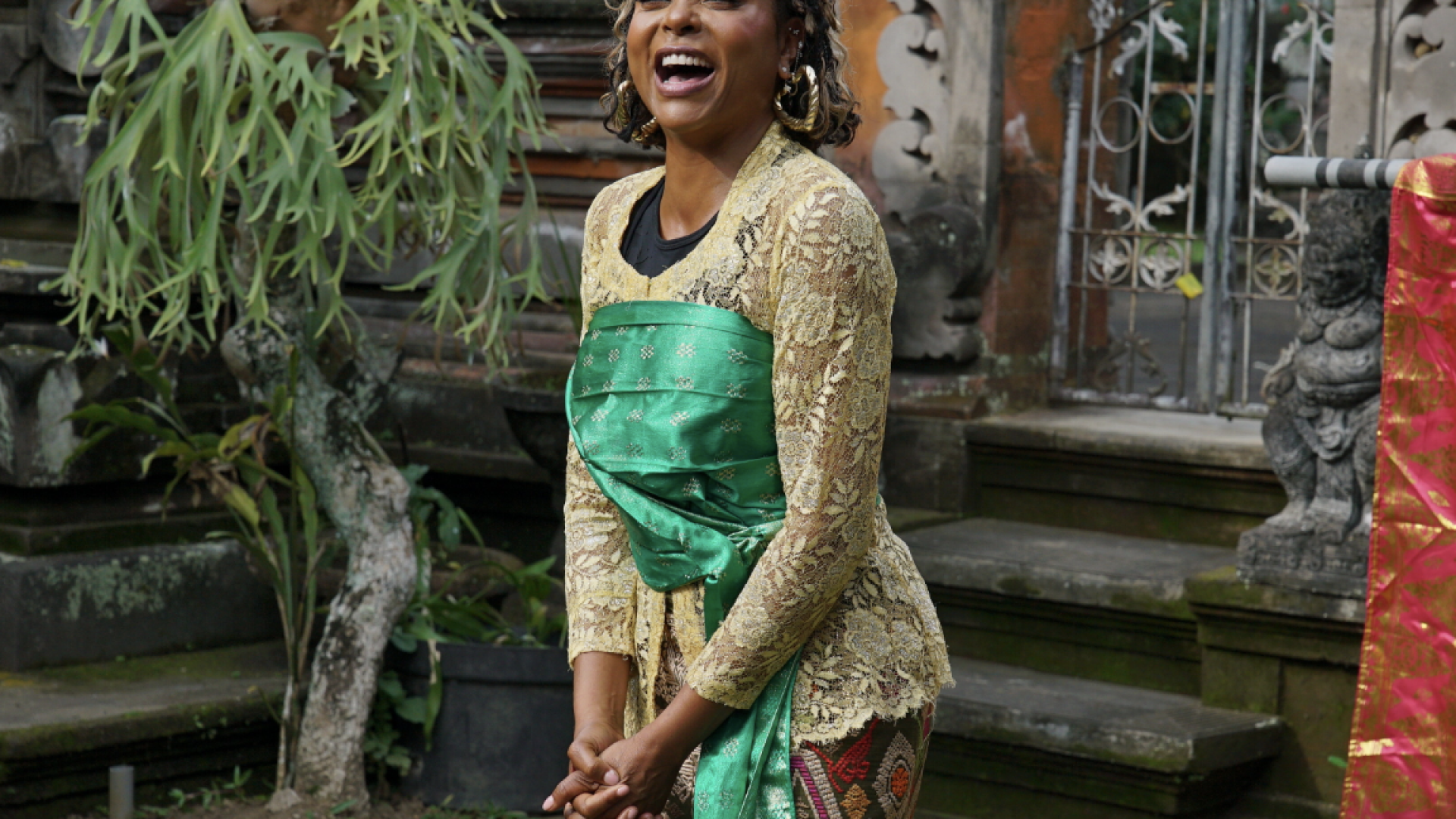
This article, “The Long Goodbye,” originally appeared in the March/April issue of ESSENCE magazine, available on newsstands now.
After completing four overnight shifts in a row at the hospital where she worked as an emergency-room technician, Breonna Taylor was ready for date night with her boyfriend, Kenneth Walker. The plan was dinner at a steakhouse, followed by watching a movie at the small, well-appointed apartment Taylor shared with her younger sister Ju’Niyah Palmer. Privacy wouldn’t be an issue, as Palmer was away on a trip. An exhausted Taylor began falling asleep while the movie was still playing. “Turn the TV off” was the last thing Walker remembers Taylor saying to him before yielding to sleep. What happened next would become national news, as Breonna Taylor’s name joined the painful list of Black lives that didn’t matter enough to law enforcement.
MARCH 2020 Just after midnight on March 13, Louisville, Kentucky, police officers used a battering ram to break open Taylor’s door. The noise prompted Taylor, 26, and Walker to sit up fearfully in bed. Walker said they shouted in an attempt to find out who was breaking in. He later told police that he suspected it was Taylor’s ex-boyfriend, trying to start trouble. At some point earlier, officers had received court approval for a “no-knock” entry. However, just before the raid on Taylor’s apartment, that order had been switched to “knock and announce.” Walker would later insist that he never heard the police announce themselves. Once police broke the door off of its hinges, Walker fired his gun one time at the intruders, striking Sgt. Jonathan Mattingly in his thigh. In response, police fired into the apartment, with five shots striking Taylor. Officer Brett Hankison then blindly shot ten rounds into the apartment. According to a report in the Louisville Courier Journal, Walker told investigators that Taylor “coughed and struggled to breathe for at least five minutes after she was shot.” Strangely, and against standard procedure, an ambulance that had been on standby outside the apartment was told to leave roughly an hour before the raid. Police called an ambulance back to the scene to get aid for the wounded officer. Taylor, however, was left to die with no medical assistance. Walker frantically called 911 for help, but it was too late.
MAY 2020 Breonna Taylor’s death at the hands of the police garnered national attention by spring. Fueled by the widespread fury over the filmed murder of George Floyd by police in Minneapolis, Minnesota, on May 25, what followed was a massive wave of global protests, calling for criminal charges against the officers involved and an end to police brutality and systemic racism. None of the officers involved in Taylor’s death wore body cameras, making it difficult to get a clear understanding of what had happened—unlike in the case of George Floyd, whose brutal murder played out on television in a constant loop. There were clear indicators, however, that Louisville officers were trying to cover their tracks. Their incident report, for example, listed Taylor as having no injuries, in spite of her fatal gunshot wounds. It also left out their use of a battering ram and failed to state that police forced their way into Taylor’s apartment. By June, as protests and demands for police reform ramped up, the Louisville city council passed “Breonna’s Law,” which now bans local law enforcement from using “no-knock” warrants and requires officers to wear body cameras while serving warrants. In an interview with The 19th, Taylor’s mother, Tamika Palmer, said she was “so grateful to the people listening and wanting the same thing I want—justice. It’s been hard, but the added support I’m getting from around the country helps keep me going.”

SEPTEMBER 2020 Louisville officials settled a wrongful-death lawsuit brought by Palmer, agreeing to pay Taylor’s family $12 million and to institute reforms aimed at preventing future police killings. As important as that was, Palmer remains more focused on making sure the officers involved in her daughter’s death face criminal charges.
Public outrage boiled over on September 23, when it was announced that the Kentucky grand jury would bring no charges over Taylor’s killing. Instead, grand jurors indicted former detective Brett Hankison on three counts of “wanton endangerment”—explaining that he threatened the lives of Taylor’s neighbors when he fired into Taylor’s apartment. Civil Rights attorney Benjamin Crump, who represents Taylor’s family, called the decision “outrageous and offensive.” The NAACP released a statement saying that the justice system had failed Taylor. “Every person has an idea of what they think justice is,” Kentucky’s Attorney General Daniel Cameron said at the press conference announcing the grand jury decision. “My role as special prosecutor in this case is to set aside everything, in pursuit of the truth.” Once again, demonstrators and activists across the country took to the streets to express their hurt and frustration. They demanded that the officers involved be arrested on felony counts.
January 2021 Louisville Mayor Greg Fischer confirmed that Detective Myles Cosgrove, one of the officers who shot Taylor, and Detective Joshua Jaynes, who prepared the search warrant for the raid on her apartment, were fired on January 5. Fischer also announced additional changes, to ensure more accountability among law enforcement.
PRESENT City officials have announced a new police chief, and the department will require the use of body cameras during the execution of all search warrants. They will also establish a civilian review board, in an effort to hold police officers accountable for their actions. While reflecting on the year since her daughter’s death, Palmer says she feels compelled to continue speaking out. “We’re still dealing with everything that went wrong that night and nobody willing to stand up to that,” she said in an ABC News podcast, Start Here, last December. “As a city, as a nation, we’ll never heal until people are held accountable. I don’t see it going anywhere anytime soon. It definitely won’t for me, because I can’t stop fighting.”




